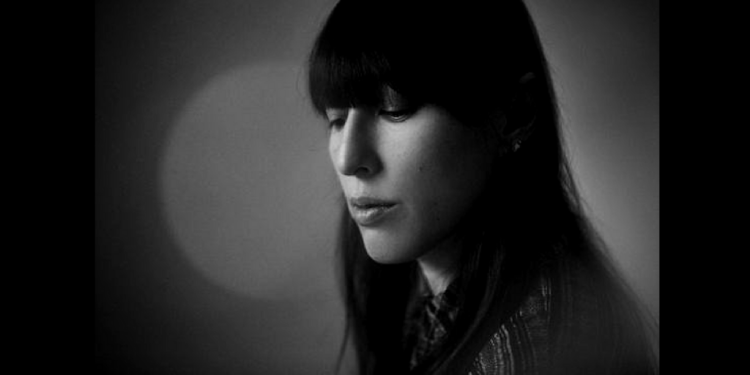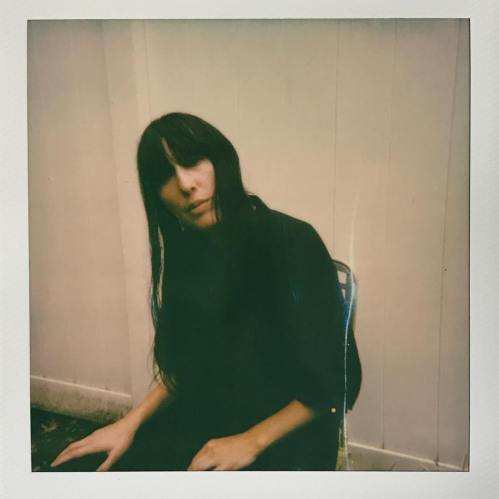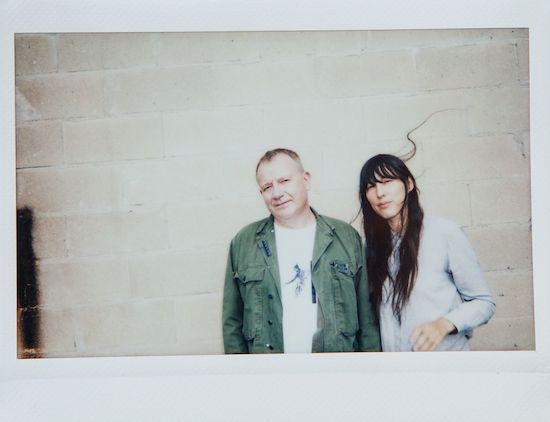
According to Derrida, “deconstruction, the deconstructive experience, is placed between the closure and the end is placed in the reaffirmation of the philosophical.” The phenomenon is seen, not as a discipline or method, but as a framework for the “what is?” from a broader and transformative point of view.
In the case of Hiro Kone, her deconstructive intention has led her to question methods of production, composition and even language. From assessing the negative space and silence to the “alien” possibilities of her modular synthesiser. In this interview, Nicky Mao gives us access to a fundamental part of her discourse –in terms of political and philosophical approach–, with which she frames her creative and artistic intention.
Let’s talk about Pure Expenditure, an acclaimed album, and it could be considered your platform for wider recognition by the media and the public. How do you feel about this change? Can we say that there is a before, and after Pure Expenditure?
Something that I’ve discovered or come to terms with, through the experience of releasing and touring so much, is that I have this intense desire to connect with people, in this case, the audience and communicate something vital. So in a sense, there probably is an after, in that I understand this better about myself now. This has always been an inherent quality to Hiro Kone, but I would say I feel less shy about this now and maybe a better sense of what I might be able to contribute.
Deconstruction is the topic that always resonates with the album. As a rhythmic or a rhetorical deconstruction? Like disarming a piece and then start playing with the parts separately to follow a narrative?
I’m constantly collapsing ideas, narrative, and tracks onto each other. I really feel a deep connection to artists like Basque sculptor Jorge Oteiza, because he understood the power of negative space, the absence – in relation to the positive. I’m very driven by silence, by the pause, by that which often exists outside of language. So really, it’s a trip to make an album because I could never foresee or plan it. It doesn’t work that way for me.
At what price do we “purely expend”? In exchange for our emotional well-being, our mental health, the possibility of a decent life?
Very good question. I’m considering this more as I grow older, I mean I don’t relate music to a career, or success in some accredited or monetary terms, but I am incredibly devoted and can find it hard to stop sometimes because clearly there is an emotional and creative transference happening. “Man’s desire is the desire of the Other”, said Lacan.
But like so many creative people I know, I’ve struggled with depression and panic attacks since I can remember, and in more recent years, debilitating migraines. I suppose though; there’s a price to pay for living a so-called decent life too, no? Is it possible to not pay in some way? I’m not entirely sure. But fortunately, I come from a community that has less of a vested interest in capital and commercial success and therefore is generally very supportive of each others health and emotional well-being.

Hiro Kone thoughts on Capitalism
You’ve said that Bataille’s ideas about capitalism and the trend of the bourgeois of kneading and not letting go (“the morbid energy”), has been the primary source of inspiration for this album. Could you go further with this?
So much of what ills us and is destroying us is the inability to let go of certain comforts. Of course, I relate to this, and I constantly question my reliance on these things. I want to have this discussion honestly and openly, rather than with constant diversions, –which in all honesty I do not think most liberal or even left identifying people are willing to really have. Yeah, you can ban straws and recycle, but there’s a more profound and inherent issue related to capitalism and our unwillingness to approach the actual problems holistically and straight on. We need to admit to our reliance on this failing system. We need to restructure how we think about it.
Consumerism has generated a sort of frenzy: as long as it is useful and solves my immediate problems, I do not want to know what is going on behind it – It happens with veganism, with the structural issues of companies such as Lyft, Uber, etc. So, If the energy doesn’t disappear rather is transformed, what we do with this morbid energy?
Well, historically speaking, there are different ways in which this was expended, and often it was through violence. It’s unfortunate that rather than restructure our societies and place importance on the welfare and basic needs of the people and environment, we instead have these outbursts of such unbelievable violence, –which has become unfortunately so believable that we are paralysed. Adam Curtis does a really good job of characterising this in his films.
I think the mass consciousness is depressed and deeply in need of some sort of renaissance in thinking, and I don’t believe necessarily relying on technology is the way. I think we need to take a step back and consider our histories and question what we are progressing towards. Considering what we could live without would be one way to expend this morbid energy in a way for the higher welfare of the people.
The relationship with your collaborators, Drew McDowall, Little Annie, Roxy Farman, seem not only to raise their creative capacity while working with you but at the same time they give a much broader sense to your discourse. How do you approach that exchange?
I really enjoy the exchange so much, it’s a very intuitive invitation, and I never know what to expect. Usually, it starts with a sketch, but once I turn it over to them, it’s really up to them how they respond. I don’t interfere in that process until they track something. Even from there, in the editing process, I’ll share mixes with them. It’s important to me to hear their critique and for them to be apart of the editing process, as well as have their final blessing.

Hiro Kone’s upcoming projects
Who would be Hiro Kone’s next and ideal collaborator(s)?
Tommi from group A and I worked on the title track for Pure Expenditure. We so enjoyed the process and outcome that we decided to start a collaborative project together. Outside of that, I’d really love to collaborate with dancers or do something with film – something challenging and new. I feel like the opportunity will present itself at the right moment.
Is Hiro Kone’s creative process changed or evolve in any way since Pure Expenditure?
Definitely evolved. I think in a way it’s a little easier for me to make the hard cuts when I’m working on a song. Also, I’ve just become way more adept at the sound design on the modular. I’m really into sculpting alien sounds, as well as processing organic stuff from field recordings and such. This really lends itself to the hybrid nature of my work.
Even if you have no interest in the club culture but in using music as a conduit to communicate your ideas: What can we expect from this next album?
The album feels quite unified because it was written in a short period of time. Also, there’s no collaboration, except for the amazing Kris Lapke who is mixing it. It has a very solitary but focused feel. You can expect that there won’t be any tracks like Pure Expenditure, but hopefully, it’ll feel just as vital as ever.
What do you feel needs to be said within your language as Hiro Kone?
We learn a language. First, there’s the mundane, trying to capture the words and structure, then with that, we may become proficient and communicate the basic emotions and intentions, but really the goal is an expression, it is poetry, where language goes beyond itself. That’s where I’m at with Hiro Kone and the beauty of that, is that it’s endless.
(…)it is poetry, where language goes beyond itself. That’s where I’m at with Hiro Kone and the beauty of that, is that it’s endless.
Do you think it is part of the artist’s work to use technology (or any tool or creative work), to try to change the consciousness of their environment?
Yes, in that I think it’s essential for us to transform ourselves and that hopefully inspire transformation around us. What tools we use is up to us. I really dislike the exceptionalism and often Eurocentric view that is often afforded to artists. I’m a part of a diverse and vast community. We need to understand that it’s okay not to try and engineer everything. We must listen.
Tell us more about your artistic residency with EMS Stockholm. Is there any specific topic or area that you want to develop during this residency?
The residency starts June 14, and I’ll be in there for two weeks working on the large Buchla and Serge. To be honest, I’m going in with no expectations for once. I have no experience working with either synth, so I’m going to feel it out and just go with it, which is really exciting.
Hiro Kone’s next episode
What do you hope to achieve from this episode in your career? Evolve as an artist, as a human being? (Framing this question within the quote by Oteiza on the transforming intention of art.)
This is very important and a key to my work. I admire Oteiza so much for choosing to abandon the art world to focus on advocating for Basque history. In my case, I grew up between two different places and travelled so much. I don’t have the same cultural distinctions as he did. Similarly, I feel the responsibility that indeed art itself does not transform anything. It’s in individual processes and learning of languages. In that process, we are changed by art, thereby it becomes possible to transform reality. This is the political nature of art.
Hopefully, through our processes, we find the initiative to work for the people. For the future we want, and not the future we were sold. I want to challenge patterns of thinking, including my own.
It is encouraging to know that there are artists, like you, who defend creation per se. What can you say to someone who is starting?
Understand the mechanisms of desire the best that you possibly can. Why you do, say, choose certain things is important to question. Be thoughtful about this when meeting people. We live such subjective lives that we so easily forget how to relate to one another. I think this attitude makes it easier to empathise with one another, too.
The current political situation is well known, not only in the United States but internationally, Palestine, Venezuela, etc. What do you think should be the role of the artist?
Do, not just what you think you can, but do more. We are more than capable. And as education becomes further privatised and with a lack of critical discourse. We have this responsibility as creative people to step up and contribute. Advocate for those who most need it. Give them a platform whenever possible. Don’t act like a saviour, instead, listen and ask how you can best be of support.
–
Main photo by Lena Shkoda.
*Spanish version available here: https://www.clubbingspain.com/entrevistas/2019/hiro-kone.html

Would you mind crediting the photographer Lena Shkoda on most of the images? Thank you.
LikeLike
Done. Sorry for the mistake.
LikeLike